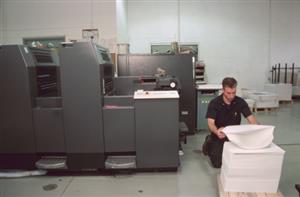
When you are trying to find an equipment appraiser who can provide quality equipment values, how do you know a good company from a bad one? Equipment appraisal firms provide machinery appraisal services to the business community and must be reliable and accurate in their documentation. Here's our look at how equipment appraisal firms operate and what to look for in a quality machine appraisal firm:
How Equipment Appraisal Firms Operate
Equipment appraisal firms provide quality machine appraisal services to a variety of industries. Though other people may purport to provide equipment appraisals, only a report from a certified equipment appraiser may be accepted in a variety of situations, including legal action, financial transactions, tax appeals, risk management and similar situations. But what makes an equipment appraisal firm different than someone who may perform appraisals for a dealership, auction company or similar business?
Independence and Scrutiny
One area to take into consideration is independence. An independent machinery appraisal company provides documentation of the machine's value that will stand up to scrutiny because they have no vested interest in the outcome of any transaction. By comparison, think about the last time you went to a car dealership with a really bad trade-in vehicle. The sales reps took a look at your trade and, because they had a vested interest in selling you a new vehicle, appraised it at a much higher value than was actually worth. At that point, they can write off the loss as the cost of doing business and claim a lower profit for the year, lowering their taxes.
Proper Certification
Another area where qualified machine appraisers stand out is in the area of certification. Being certified by an accrediting agency or organization means that the appraiser has had training and been tested to ensure they'll use the appropriate methods and techniques when appraising your equipment. An Accredited Senior Appraiser (ASA) and Accredited Member (AM) in Machinery & Technical Specialties (MTS) are designations from the American Society of Appraisers (ASA) that proves that the appraiser you're hiring to value your machinery has a solid grasp of the techniques and methodologies used to value equipment. They'll often take into account different factors including the expected lifespan of the machinery, current market conditions and many more issues that can affect the valuation of your machinery.
Appropriate Approaches and Methodology
Part of the qualification for certifying as a machine appraiser includes learning how to apply the appropriate approach and methodology to the appraisal. This is of vital importance in many situations, including insurance claims, business value when changing ownership or buying out a partner, getting financing for a business expansion, providing documentation for a property tax appeal and many other situations. If your machine appraisal doesn't include the appropriate methodology, it may be rejected and your effort and money wasted.
Now that you know what to look for in a firm offering quality equipment appraisals, it's time to find one that will work well with your company's needs. If you haven't found a company yet to provide you with quality equipment values, please contact our expert equipment appraisers at Equipment Appraisal Services.





